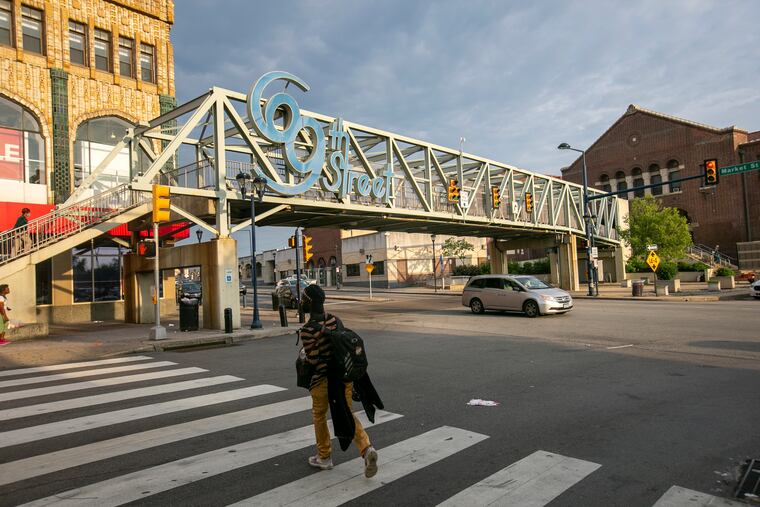SEPTA to launch new three-day passes, fit for the COVID-19 era
The “Three-Day Convenience Pass,” geared toward those with irregular work shifts as well as tourists, rolls out on Tuesday.

SEPTA is about to introduce a fare product that takes on new meaning during the COVID-19 pandemic.
Starting Tuesday, the transportation authority will offer a “Three-Day Convenience Pass” on the Key card, its smart fare system, for bus, trolley, Market-Frankford and Broad Street Lines, as well as Norristown High Speed Line riders. For $18, passengers can ride up to 24 trips over the course of 72 hours.
The product was designed before the pandemic as part of SEPTA’s fare restructuring plan in March, and intended to appeal to riders caught between a weekly pass and Travel Wallet, the SEPTA Key’s pay-as-you go feature.
SEPTA had in mind two specific groups for the new pass: workers without typical 9-to-5 commutes, like health-care employees staffing three 12-hour shifts, as well as visitors to Philadelphia for a few days. SEPTA also considered rideshare, knowing the services ate away at ridership figures as commuters may have favored those services over public transit a few times a week.
But the pandemic has swallowed Philadelphia’s tourism industry, created an unemployment crisis, and kept many white-collar workers in home offices. Now, as workers weigh new commutes and consider hybrid schedules that would bring them to offices or schools just a few days a week, the pass takes on “added relevance," said SEPTA spokesperson Andrew Busch.
» READ MORE: COVID-19 has ‘everyone you talk to looking to buy a car’
“It’s creating options," he said. "We know that obviously, people are changing how they travel and that includes how they ride SEPTA, that we have to give some flexibility and additional options, so these are a step in that direction.”
Yasha Zarrinkelk, of Transit Forward Philadelphia, an advocacy coalition, said he applauds SEPTA for adopting such a pass.
“The more options that you’re providing to riders — a weekly pass, a monthly pass, a Three-Day Convenience Pass — is successful in serving riders, is successful in giving them the freedom and the opportunity to access the places that they essentially deserve," he said.
SEPTA continues to struggle with low ridership during the pandemic. As of late September, figures on buses, subways, and trolleys were down 65% from prepandemic levels. Regional Rail serves about 85% fewer riders than before.
» READ MORE: Transportation is another pandemic hurdle for those seeking treatment
The Three-Day Convenience pass isn’t valid on the Route 78 bus, an express route traveling from Cornwell Heights to Center City, or on Regional Rail, however.
But another new option on the SEPTA Key card intends to serve a similar purpose for Regional Rail riders. On Tuesday, SEPTA will begin to offer a “One Day Individual Independence Pass / 3 Pass Bundle" that “essentially bundles three one-day passes together at a discounted rate,” according to the authority.
For $36, riders can use the option for any three days of the week they choose, and on each day, use up to 10 combined trips on Regional Rail and buses, trolley, subways, or the Norristown High Speed Line.
SEPTA tweaked its fare restructuring plan since March, and approved parts of the plan in June. Since July, kids under age 12 ride SEPTA for free, while the authority has allowed all riders one free transfer. Previously, transfers cost $1 on the SEPTA Key card, and transportation advocates are pushing for unlimited free transfers.
The authority has postponed fare increases, including a 50-cent hike to the SEPTA Key’s base fare and costlier weekly and monthly passes, until at least January to give relief to riders during the pandemic.